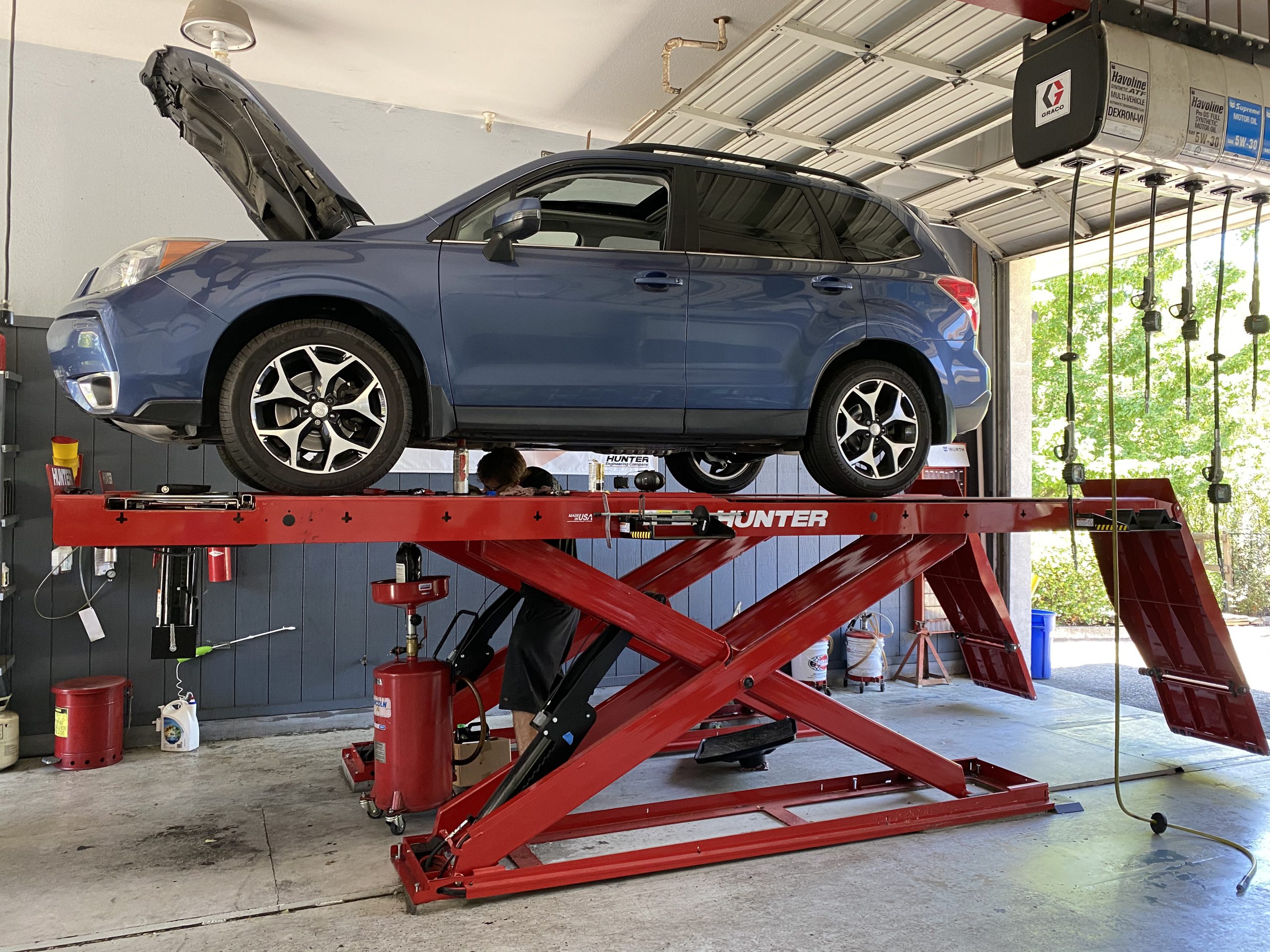Did you know that only 17% of drivers adhere to the recommended tire rotation frequency? Experts emphasize the importance of regular tire rotations for optimal performance and longevity of your vehicle. Neglecting this maintenance task can lead to uneven wear, affecting your car’s handling and safety. So, how often should you perform a car tire rotation? Let’s delve into the insights shared by industry professionals to help you determine the ideal frequency that suits your driving habits and vehicle type.
Why Tire Maintenance Matters
Safety Concerns
Maintaining healthy tires through regular rotations is crucial for ensuring tire wear is even. Uneven tread wear can lead to preventable tire accidents due to decreased traction, especially in wet or slippery conditions. Proper tire maintenance directly impacts overall vehicle safety.
Seeking professional advice for tire service can help identify early signs of tire failures caused by irregular wear patterns. These experts can recommend the ideal rotation schedule based on your driving habits and vehicle type.
Vehicle Efficiency
Correct tire inflation levels play a significant role in maximizing tire lifespan and fuel efficiency. Underinflated tires can result in increased rolling resistance, leading to decreased gas mileage and accelerated tread wear. Regular rotations help distribute wear evenly, extending the life of your tires.
Alignment issues can also contribute to uneven wear patterns, affecting both safety and efficiency. Addressing alignment problems promptly can prevent tire warranty requirements from being voided due to neglecting proper maintenance practices.
Professional Guidance
When in doubt about the condition of your tires, consulting with a professional ensures that potential issues are identified early on. These experts can assess the extent of uneven wear and provide tailored recommendations to address specific concerns.
Exploring Tire Rotation
Mileage Intervals
Car tire experts recommend performing tire rotations every 5,000 to 8,000 miles to ensure even wear. Regular rotations can extend the lifespan of your tires.
Rotating your car tires at the recommended intervals promotes uniform tread wear, enhancing overall performance and safety on the road. Neglecting tire rotation can lead to uneven wear patterns, affecting handling and traction.
Driving Habits and Vehicle Type
Your driving habits and vehicle type play a crucial role in determining how often you should rotate your tires. If you frequently drive on rough terrain or carry heavy loads, consider rotating your car tires more frequently.
SUVs and trucks typically require more frequent tire rotations due to their weight distribution and driving conditions. Being mindful of these factors can help you decide when it’s time for your next rotation.
Impact of Wear Patterns
The wear patterns on your tires can indicate when they need to be rotated. Uneven wear on the front or rear tires suggests an imbalance that can be corrected through rotation.
Regularly inspecting your tires for signs of uneven wear, such as cupping or feathering, can help you identify when a rotation is necessary. Addressing these issues promptly can prevent further damage and ensure optimal tire performance.
Importance of Regular Tire Rotation
Extending Tire Life
Regular tire rotation is crucial for extending the lifespan of your tires. By rotating them at specific intervals, you ensure that each tire wears evenly. This even wear pattern helps in maximizing the overall longevity of your tires.
Maintaining Even Tire Wear
One of the key benefits of regular tire rotation is maintaining even tire wear. When tires wear unevenly, it can lead to issues such as reduced traction, increased road noise, and poor handling. By rotating your tires periodically, you can prevent these problems and ensure a smoother driving experience.
Front-Wheel Drive Vehicles
For front-wheel drive vehicles, tire rotation is particularly important due to the weight distribution and power delivery to the front wheels. Since the front tires bear more weight and wear out faster than the rear tires, they need to be rotated more frequently. Experts recommend rotating the tires on front-wheel drive vehicles every 5,000 to 7,500 miles to ensure balanced wear across all four tires.
Understanding Tire Balancing
Recommended Intervals
Car tire balancing should ideally be done every 6,000 to 7,500 miles or every six months. This practice helps ensure even tire wear and a smoother driving experience.
Driving Conditions Impact
Factors like rough roads, potholes, and frequent stops can lead to tire imbalance. In such cases, balancing may be required more frequently to maintain optimal performance.
Importance of Balancing
When purchasing new tires, it’s crucial to have them balanced to prevent uneven wear. Noticing signs of wear, such as vibrations or steering issues, indicates the need for tire balance tools to rectify the imbalance.
Meeting Vehicle Maintenance Needs
Following Manufacturer Recommendations
Drive vehicles require regular maintenance to ensure optimal performance and longevity. Experts stress the importance of adhering to manufacturer-recommended schedules for tasks like tire rotation.
Regular maintenance services not only enhance safety but also contribute to vehicle longevity. By following guidelines, drivers can prevent premature wear and tear on their tires.
Tire Maintenance for Longevity
Proper tire maintenance plays a crucial role in extending the lifespan of a vehicle. Regular rotation helps distribute wear evenly between the front and rear tires.
Neglecting tire care can lead to uneven wear patterns, affecting vehicle handling and overall safety. Mechanics recommend routine checks and adjustments for optimal performance.
Importance of Inflation and Alignment
Before performing any maintenance tasks, ensuring proper tire inflation is essential. Incorrect pressure levels can impact fuel efficiency and tire wear.
Maintaining wheel alignment is equally crucial for even tire wear. Misaligned wheels can cause uneven tread wear, affecting vehicle stability.
Techniques for Effective Tire Rotation
Recommended Patterns
Car owners should refer to their owner’s manual for specific guidelines on correct tire rotation. The manual typically outlines various rotation patterns, such as the criss cross tire rotation patterns. These patterns ensure even wear across all tires, extending their lifespan.
Safety and Performance
Tire rotation plays a crucial role in maintaining safety and vehicle performance. By regularly rotating tires, drivers can enhance traction, improve handling, and promote balanced wear. This not only ensures a smoother driving experience but also maximizes the longevity of the tires.
Impact of Highway Driving
Highway driving tends to cause uneven tire wear, primarily affecting the front tires. Due to the constant turning and braking on highways, front tires wear out faster than rear tires. As a result, car owners who frequently drive on highways should consider more frequent tire rotations to mitigate this issue.
Simplifying the Tire Rotation Process
DIY Tips
Performing rotation maintenance on your car tires is crucial for ensuring even wear and extending their lifespan. To simplify the process at home, start by parking your vehicle on a level surface and engaging the parking brake. Loosen the lug nuts before lifting the car with a jack securely placed under the manufacturer’s recommended jacking points.
Remember to rotate your tires in a specific pattern based on your vehicle type – front-wheel drive, rear-wheel drive, or all-wheel drive. This pattern helps promote even wear across all tires, enhancing overall performance and safety on the road.
Essential Tools
When undertaking DIY tire rotation, having the right tools is essential for a smooth process. Ensure you have a sturdy jack, jack stands, a torque wrench, and a lug wrench in your toolkit. These tools will assist you in lifting the car safely, removing and reinstalling the lug nuts correctly, and applying the recommended torque for secure fastening.
By investing in these tools, you not only save money on professional maintenance but also gain valuable knowledge about your vehicle’s components and maintenance requirements.
Overcoming Challenges
One common challenge faced during tire rotation is identifying the correct rotational pattern for your specific vehicle. Refer to your car’s manual or consult with a trusted mechanic to determine the appropriate rotation sequence for optimal results.
Another challenge is unevenly tightened lug nuts, which can lead to safety hazards while driving. To overcome this, use a torque wrench to tighten the lug nuts to the manufacturer’s specifications, ensuring uniform tightness across all wheels.
In case of any uncertainty or difficulty during the tire rotation process, do not hesitate to seek guidance from experienced professionals or online tutorials to avoid potential mistakes that could impact your vehicle’s performance.
Expert Recommendations on Rotation Frequency
Rotation Pattern
Car tire rotation is a crucial maintenance task recommended by experts to ensure even tread wear and prolong tire lifespan. Most professionals suggest rotating your tires every 6,000 to 8,000 miles. This frequency helps maintain optimal traction, handling, and performance of your vehicle.
Regular rotation not only extends the life of your tires but also enhances overall safety on the road. By following a consistent rotation pattern, you can prevent uneven wear, which can lead to issues like vibrations, reduced fuel efficiency, and compromised handling.
Reviews
When determining the ideal rotation frequency for your vehicle, it’s essential to consider various factors that can influence this schedule. Driving habits play a significant role in how often you should rotate your tires. For example, frequent city driving with numerous stops and starts may necessitate more frequent rotations compared to predominantly highway driving.
Another critical aspect to consider is the type of tires you have on your vehicle. Different tire types and brands may require specific rotation intervals to ensure optimal performance and longevity. Consulting your vehicle’s manual or seeking advice from a professional mechanic can help you determine the most suitable rotation pattern for your specific tires.
Importance of Adhering to Recommended Intervals
Adhering to the recommended tire rotation intervals is paramount for maintaining the health and performance of your tires. Failure to rotate your tires regularly can result in uneven wear patterns, leading to premature tire replacement and potentially compromising your safety on the road.
Consistent rotation helps distribute wear evenly across all four tires, extending their lifespan and maximizing performance. By following expert recommendations on rotation frequency, you can enjoy a smoother ride, improved fuel efficiency, and enhanced overall safety while driving.
Closing Thoughts
Ensuring your car’s tires are well-maintained is crucial for a smooth and safe driving experience. By regularly rotating and balancing your tires, you not only extend their lifespan but also enhance your vehicle’s performance and fuel efficiency. Following expert recommendations on rotation frequency can prevent uneven wear, saving you money in the long run.
Take charge of your vehicle’s maintenance schedule today. Regular tire rotations are a simple yet effective way to keep your car running smoothly and safely. Don’t wait until it’s too late – prioritize your tire care routine and enjoy a more comfortable and efficient ride. Your wallet and your safety will thank you!

Seeking Expert Tire Rotation Services? Discover the Excellence of autoTECH Blackhawk Today!
Discover the exceptional service of autoTECH Blackhawk for all your tire rotation needs. Why choose us? Our dedication to building strong client relationships sets us apart in the specialized field of tire maintenance. This commitment forms the foundation of our personalized service, ensuring your vehicle’s safety and performance are always our top priorities.
Are you gearing up for winter roads, aiming for even tire wear to boost performance, or ensuring your family vehicle is in peak condition? Look no further. At autoTECH Blackhawk, we pride ourselves on offering industry-leading services backed by a 3-year/36,000-mile warranty. We use only Original Equipment and manufacturer-recommended tires, guaranteeing your complete satisfaction with our tire rotation services.
Don’t wait! Contact our friendly team today to schedule a convenient and contactless consultation for your vehicle’s tire rotation. Experience the autoTECH Blackhawk difference and drive with confidence.


